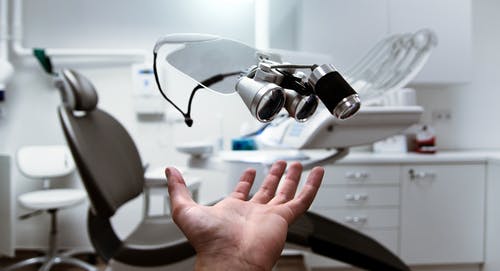The Connection between Oral Health and Depression
- Written by Diana Smith

The human body is more interconnected than previously thought. This means that the health of one part can greatly affect the health of another part. This leads us to the conclusion that oral health has consequences that extend to both body and mind. Here are all the ways teeth hygiene can influence mental health (and vice versa) and lead to serious medical conditions such as depression and anxiety.
Depression and oral health
Mental health itself can affect the way people take care of their teeth. For instance, patients with mental illnesses are almost 3 times more likely to experience teeth loss than the general population. Depressed people tend to neglect oral hygiene which often leads to various diseases like gum disease and tooth decay.
Oral issues can lead to self-esteem problems
On the flip side, oral health issues can be blamed for the manifestation of mental health issues in certain cases. For instance, one way your oral health can influence your mental health is through your self-esteem. Poor appearance (yellow, decaying or missing teeth), chronic bad breath and difficulty speaking can all damage the feelings of self-confidence. Imagine the feeling of thinking that no one wants to date you because of your crooked smile. It can be truly devastating to someone suffering from image problems. Luckily, today there are great specialists who can fix your smile and improve your self-esteem. For instance, if you find an excellent Chatswood orthodontist, you can get out of there with perfect braces that will treat your bite discrepancies. They even offer see-through braces that no one will even notice you’re wearing!
Depression and motivation
If you ever experienced a depressive episode, you probably know how hard it is to find the motivation to do anything, even brush your teeth. All the things you care about are suddenly pointless, including your health. So, it’s really not a surprise that scientists found a link between depression and oral health issues. In short, people suffering from depression might tend to ignore important self-care habits (brushing and flossing) and trigger gum and teeth diseases.
Depression and diet
Ever since we were kids, we’ve been taught that the way towards healthy teeth and gums is paved with health foods. Sweets, carbonated drinks, alcohol and various carbs might be delicious, but they are killers of oral health because the bacteria living in your mouth adores sugars. And people who suffer from depression often tend to neglect healthy eating habits, overeat or reach for junk food full of sugars and carbs that just feed the oral bacteria. However, if you want to both boost your mental and your oral health, try to control your diet. At least grab a packet of xylitol chewing gum that cleans teeth and helps minimize the effect of unhealthy food on your teeth. If you crave something sweet, resort to eating antioxidant-rich dark chocolate that won’t wreak havoc in your mouth.
Depression and stress
Here’s another thing to contemplate when talking about the connection between oral and mental health: stress. Depression causes the increased release of a stress hormone cortisol that causes that well-known feeling of stress. And since stress affects almost every part of your body including the immune system, it can boost the possibility of oral problems like gum inflammations. We all know that stress isn’t pleasant, but we’re often not aware of all the many effects it has on your body, especially the mouth. For instance, when you’re feeling very stressed thanks to your depression and anxiety, you might subconsciously clench your jaw or grind your teeth. Additionally, both depression and stress cause dry mouth syndrome which increases the risk of mouth infections, gum inflammations and tooth decay. The best thing you can do to handle your problem is see a therapist and your dentist. They know how to help you battle your issues and you’ll definitely feel much better after talking to them.
Oral health and mental health cannot be separated one from another. Each affects the other in a way that will definitely be felt in time. While healthy mouth might be the last thing on your mind when you suffer from depression, oral health is the key to a good self-care routine and a crucial component of self-esteem. So, make sure to bring both your depression and your oral health under control and you’ll feel like a whole new person.






